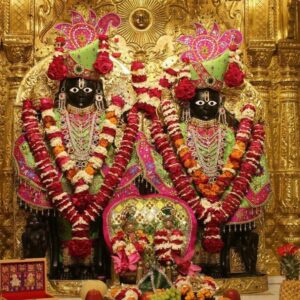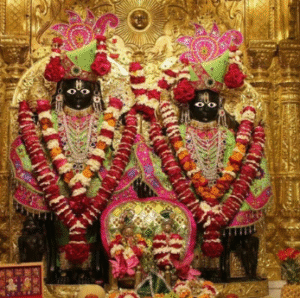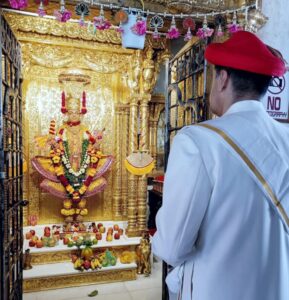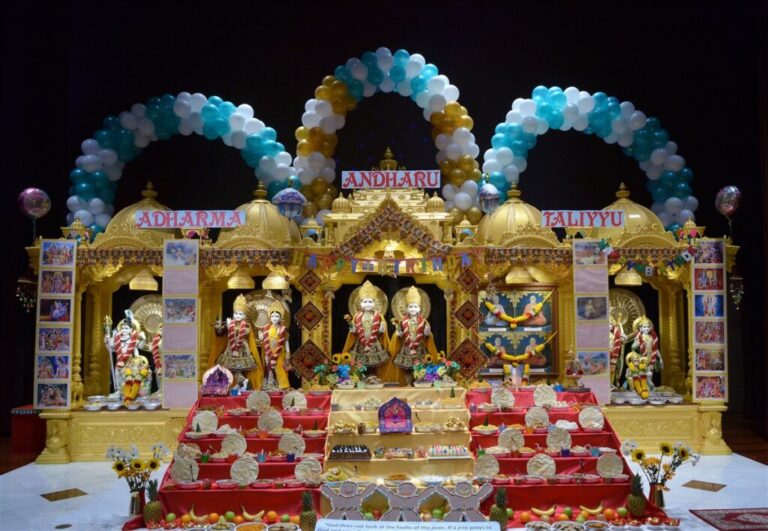A few words
About Us
Our story
The Lord Shree Swaminarayan Mandir refers to the temples established in honor of Bhagwan Swaminarayan, the founder of the Swaminarayan Sampraday, a Hindu sect that follows Vaishnavism and upholds the worship of Lord Swaminarayan as the Supreme God.

The Lord Shree Swaminarayan Mandir stands as a testament to the profound and
enduring legacy of Lord Swaminarayan.
The Lord Shree Swaminarayan Mandir is part of the Swaminarayan Sampraday, a significant religious tradition that traces its origins to the life and teachings of Lord Shree Swaminarayan.
Lord Swaminarayan, who was born as Ghanshyam Pande in 1781 in a small village called Chhapaiya in Uttar Pradesh, India, founded this spiritual movement. His teachings focused on devotion to God, moral righteousness, self-discipline, and a strict code of ethics, aiming to guide individuals toward spiritual liberation (moksha).
The history of Lord Shree Swaminarayan Mandir begins with Lord Swaminarayan’s establishment of temples, one of the most prominent and significant being the Kalupur Swaminarayan Mandir in Ahmedabad. The establishment of Swaminarayan temples throughout India and abroad served as spiritual centers for the growing community of followers.
Today, Lord Shree Swaminarayan Mandirs can be found all over the world. They are vibrant centers of worship and community life, continuing Lord Swaminarayan’s teachings and expanding his message of devotion, peace, and spiritual unity.
The temples serve as spiritual hubs, hosting regular Satsang sessions, Bhajans, and Kirtans (devotional songs), alongside spiritual discourses and educational programs for devotees of all ages. The temples are also involved in social service, including hospitals, schools, and other charitable projects, reflecting Lord Swaminarayan’s commitment to improving society through both spiritual and practical means.
The Origins and Foundation of the Swaminarayan Sampraday
The Swaminarayan Sampraday, through these temples, continues to guide individuals on the path of devotion, ethics, and service, with the aim of achieving moksha and living a life of peace, prosperity, and spirituality.
Mission & Values
Our mission is rooted in the core principles of the Swaminarayan tradition:
- Devotion (Bhakti): To worship Lord Shree Swaminarayan and connect with the divine through prayer, rituals, and meditation.
- Service (Seva): To engage in acts of selfless service to humanity, following the example set by our spiritual leader.
- Compassion: To extend love and kindness to all living beings, recognizing the divine spark in every soul.
- Unity: To foster unity and harmony among devotees, encouraging them to work together for the greater good.
Key Features of Lord Shree Swaminarayan Mandir

The Central Deity
- The central deity worshipped in Lord Shree Swaminarayan Mandir is Lord Swaminarayan himself.
- Devotees believe that Lord Swaminarayan is the Supreme Being, the incarnation of God who is responsible for bringing spiritual liberation to the world.
- The idols of Lord Swaminarayan are intricately carved and beautifully adorned in each temple, symbolizing his divine presence.

Rituals and Worship
The temples follow a rigorous schedule of rituals that include Aarti, Pooja, and other sacred ceremonies.
The daily worship at Lord Shree Swaminarayan Mandir is performed with great devotion, and there are special prayers and services for specific occasions, including festivals and religious events.
The daily schedule typically includes:
- Mangal Aarti (early morning prayers)
- Rajbhog Aarti (midday prayers)
- Sandhya Aarti (evening prayers)
- Special Pooja ceremonies for festivals and events.

Festivals and Celebrations
- The Swaminarayan Mandir is a hub for spiritual and cultural festivals. Holi, Diwali, Janmashtami, Maha Shivaratri, and Rath Yatra are celebrated with much grandeur and devotion in the Swaminarayan temples.
- These festivals are an opportunity for devotees to come together in large numbers to perform collective prayers, participate in processions, and engage in charitable activities.
